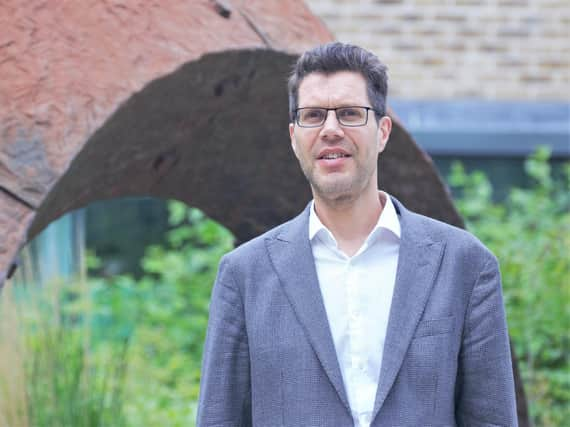Lancaster University professor takes message on tackling loneliness to Parliament


Niall Hayes, professor of information and organisation, and head of the Department of Organisation, Work & Technology, was among experts speaking at an Industry and Parliament Trust (IPT) afternoon meeting.
He was joined by Joanna Dring, head of media at Heineken, members of the House of Lords and representatives from across business and industry to discuss 'Loneliness and Social Isolation'.
Advertisement
Hide AdAdvertisement
Hide AdThe event, chaired by IPT chief executive Nick Maher, had been planned for the House of Commons, but due to Covid-19 restrictions was rearranged online.
Prof Hayes leads on the Mobile Age project at Lancaster University, working with older adults to develop an app that helps them better connect with their communities. The project has had support from South Lakes District Council, in Cumbria, and Westmorland & Lonsdale MP Tim Farron, as well as working with care providers in the region.
He said: “There are an estimated nine million lonely people in the UK, including around 200,000 older people who have not had a conversation with a friend or relative in more than a month. Loneliness has a negative effect on people’s health – with those suffering from loneliness more likely to have emergency admissions, enter residential care, suffer depression, and develop dementia.
“Addressing loneliness and social isolation can facilitate independent living and improve physical and mental health, and the event sought to explore the issue and consider potential interventions and policy developments.”
Advertisement
Hide AdAdvertisement
Hide AdDiscussion at the IPT event focused around face-to-face social connectedness, rather than the use of social media and related technologies, with many older adults having limited internet access and worrying about digital technology becoming a substitute for face-to-face socialisation.
Prof Hayes added: “There was a strong consensus that, post-Covid, the focus should be on enabling face-to-face interaction, but one of the challenges lonely people face is the difficulty of finding out what is taking place in their communities.
“Further, once events have been identified, they need access to information to plan and attend. Enabling access to this information is essential to facilitate participation.”
Other areas of discussion included the importance of transportation – and investment in public transport – the need to consider the placement of community spaces in town planning and building design, and how technology might play a key role by opening up data about events.
Advertisement
Hide AdAdvertisement
Hide Ad“Diverse organisations have roles to play in addressing loneliness,” said Prof Hayes. “The public, the private and the third sectors provide invaluable services that need to be supported and developed, such as Age UK's Men in Sheds initiatives and local authority fitness classes; pubs hosting lunches targeting groups especially vulnerable to loneliness, such as young men, LGBTQ and older adults; and transportation providers developing initiatives such as a Chatty Bus – where seats are reserved for those who seek out company on the journey.
“While most interventions focus on the public and the third sectors, it is important to recognise that the private sector has the resources, training and reach to be key in addressing loneliness, a task that requires a multi-agency response with strong leadership.”
Comment Guidelines
National World encourages reader discussion on our stories. User feedback, insights and back-and-forth exchanges add a rich layer of context to reporting. Please review our Community Guidelines before commenting.